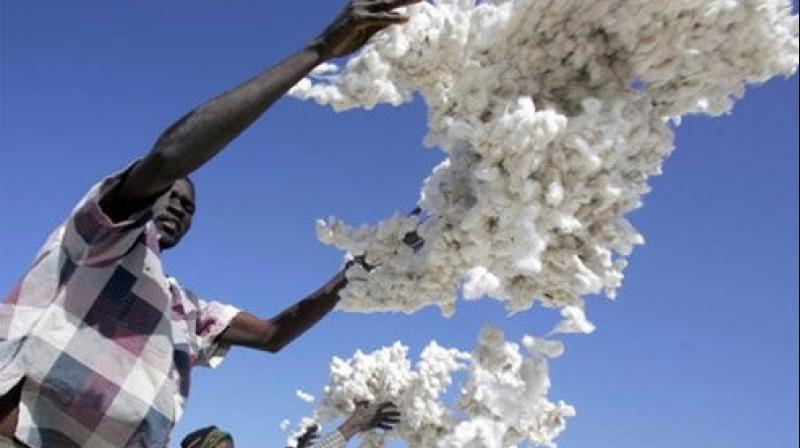Hyderabad: Make machinery cotton-centric
The imported machines can only take one variety of cotton which is the only thing grown now.;

Hyderabad: The Hyderabad Literary Festival played an unstinting host to many thought-provoking panel discussions. Cotton came in for a threadbare discussion and the participants unveiled its pre-Independence history when it enjoyed numerouno position in cotton. They also shed light on the cotton cultivation and the industry.
Growing cotton, weaving it into fabric and clothing the people is something India has done for thousands of years. This fabric has clothed Rajas, Maharajas and paupers.
So, what went wrong? I asked Uzramma. The culprit in this case is the revolution in machinery. Once we started importing machines, it became a game of matching the crop to the abilities of the machine. In her words, the imported machines can only take one variety of cotton, and that is what is being grown now. This variety requires more water and enormous amounts of fertilisers, not to mention the specific type of seeds. Her colleague chimes in, “The fertiliser and chemicals leach into the soil causing extensive health hazards, to such an extent that there are several villages that have high incidence of cancer.”
What then is the solution to the problem? Uzramma continues, “We are searching for green investments, so why are we ignoring this green industry? It is a world-beating industry. China cannot compete with handloom weaving and its product diversity. All we need to do is to retool the machinery to accept the varieties of cotton that India grows.” Why does the outlook for the cotton industry look bleak? Successive governments have refused to invest in R&D to develop the appropriate machinery, her colleague added. In response to the criticism that cotton tends to be expensive, he says that cloth emanating from large mills contains embedded subsidies: in the form of soft loans, tax treatment of profit, and facilities for technological upgradation. Take these incentives away, he says, and cotton will beat all other fabrics!
Arvind Acharya is a management consultant in New York. He is working on a film on the life of Princess Niloufer. He can be reached at arvindach@ gmail.com.

